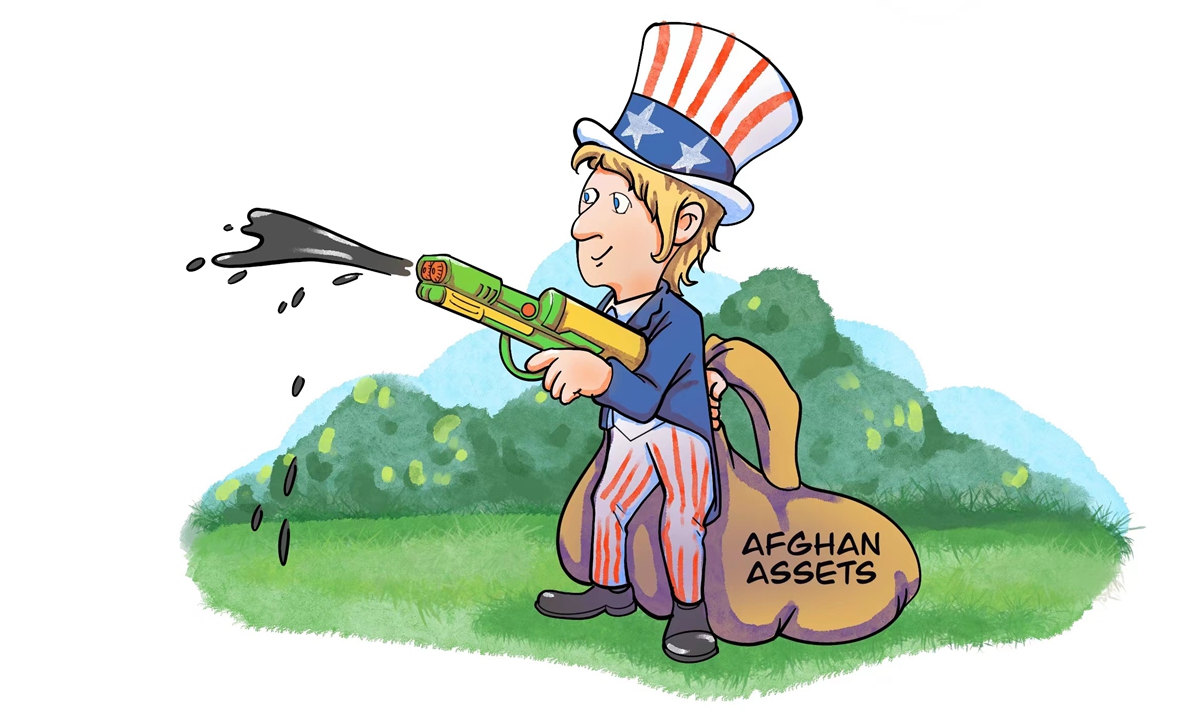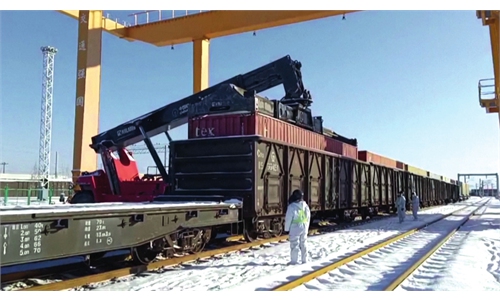
Illustration: Tang Tengfei/Global Times
China is negotiating with Taliban authorities in Afghanistan over mining projects for one copper reserve and one oil-and-gas reserve in the country, the Wall Street Journal reported, citing US officials as saying "they are concerned that China will fill the vacuum left by the American withdrawal from Afghanistan."
The news has yet to be confirmed, but what stands out in the WSJ piece is that it fully reflects the US' hegemony. "While the US deployed tens of thousands of troops there and spent hundreds of billions of dollars, it was never able to unlock this bounty" the report said. By the "bounty", it apparently refers to the $1 trillion-worth Afghan mineral resources, while ignoring the grave human and economic devastation the US left behind.
Afghanistan is a mineral-rich country, yet decades of wars and chaos have kept the Afghan people from developing their natural resources. Clearly how mineral exploitation could benefit local people is not important in the eyes of US media or politicians.
In fact, both the two mines that WSJ mentioned were not new projects. The copper mine in Mes Aynak was invested by Chinese firms as early as in 2009, the same year when China and Afghanistan inked a Memorandum of Understanding on mining cooperation. The oil-and-gas mine in Amu Darya was invested by Chinese firms in 2011. However, neither project has seen substantial progress since they were signed due to security concerns and other factors, according to observers.
It is entirely reasonable for Chinese companies to seek progress in resuming projects when the situation permits, which also meets the urgent need of Afghanistan to seek economic development and post-war reconstruction, especially after the US' disgraceful move to freeze and then split $7 billion assets in the US belonging to Afghanistan's central bank.
Indeed, the US had spent hundreds of billions of dollars in Afghanistan before its withdrawal, as the WSJ said, but the money was never meant to help development of the war-torn country; instead, it was spent mainly to serve the US' diplomatic strategy, with a focus on military sectors.
Except for the capital city of Kabul, other places in Afghanistan have not seen any development or investment over the past decades.
Besides the grievous deaths and wounds of Afghan civilians caused by the US military and its ally forces, the Afghan War caused an average loss of $60 million on a daily basis, putting a drag on the socioeconomic development of Afghanistan, China's Foreign Ministry spokesperson Hua Chunying said in last August in a press conference.
The US and other Western affluent countries share a notorious history of plundering and oppressing others, including Afghanistan and others from Africa, Asia and South America. Even after many have declared independence, Western powers have kept trying to plunder resources and others' sources of wealth from these countries to serve their own interests.
Though many in the West have been touting their so-called democracy or human right around the world, they are the exact forces making turmoil and hindering the legitimate development of others.
By contrast, China has been promoting cooperation with others under the principle of mutual respect and mutual benefit and with no political strings attached, creating job opportunities to local people and improving infrastructure of many poor countries and regions.
It cannot be stressed enough that US media and politicians should ditch the colonial mindset when looking at China's investment in Afghanistan. Indulging in their deep-rooted colonial thinking, they will never understand China's presence in the global stage correctly or the thriving cooperation between China and other developing country, especially under the BRI framework.
The author is an editor with the Global Times. bizopinion@globaltimes.com.cn


